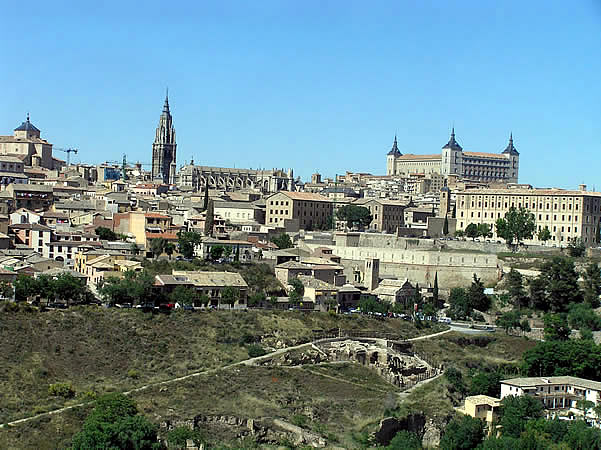Valencia, a city of over 800.0000 inhabitants, is the third largest city in Spain after Madrid and Barcelona, and also the third Spanish economic and industrial center. It is one of the most dynamic cities in the nation. The city is located on the Mediterranean Sea and is also an important port, one of the […]
Author: admin
The Valencian Community (Comunidad Valenciana) is a region of Spain located in the central-eastern area of the Iberian Peninsula. This region overlooks over 500 km of coastline on the Mediterranean Sea, while in the interior it has borders in common with the regions of Murcia, Castilla-La Mancha, Aragon and Catalonia. The region corresponds largely to […]
The Costa Dorada (Daurada in Catalan) is the coastal region of the province of Tarragona, south of Barcelona, between the delta of the Ebro river in the south and Sitges in the north. It is over 100 km of coast well developed from the tourist point of view. The coast is very varied, made up […]
Costa Brava: the wild coast of Catalonia
The Costa Brava is a renowned coastal and seaside tourist area of Spain, specifically of Catalonia. It extends for over 200 km north of Barcelona from the town of Blanes to the border with France. The Costa Brava is practically the coast of the province of Gerona where the last spurs of the Pyrenees reach […]
Barcelona has a temperate Mediterranean climate all year round. The city has mild winters and hot summers but mitigated by the sea, the rains are irregular. Summers are usually hot but rarely excessively hot, the average maximum temperatures reach the highest value in August with 29 ° C in the same month the average minimum […]
Barcelona: the economic engine of Spain
Barcelona, the capital of Catalonia, is the economic engine of Spain. The city rises along the coasts of the Mediterranean Sea. With a population of almost 2 million inhabitants, it is, after the capital Madrid, the most populous city in the country. The city of Gaudí is rich in history and art. There are wonderful […]
Catalonia is a region of Spain located in the northeastern end of the Iberian Peninsula. This region to the north is bordered by France and Andorra, while to the east and south it overlooks the Mediterranean Sea with about 580 km of coasts, finally it borders with the Valencian Community to the south, and Aragon […]
Segovia has a purely continental climate with harsh and cold winters, the summers instead are rather short, hot and rather dry. This type of climate is due to the altitude in which the city is located (about 1,000 meters above sea level), and to its position in the center of Meseta and far from the […]
Segovia is a town of 55,000 inhabitants located 1,000 m. above sea level. The city is located at the northwestern base of the Sierra de Guadarrama, located between the Eresma and Clamores rivers. The city was important since Roman times, when it was known by the name of Segobriga. It became part of the Roman […]
The climate of Burgos: when to go to Burgos
Burgos is over 850 meters high in the northern Meseta, the city has a temperate continental oceanic climate. Winters are cold and windy with minimum temperatures that drop even below freezing. Summer is a hot season, but rarely excessively hot due to the altitude of the city. July is the hottest month with an average […]
Burgos: a majestic Gothic cathedral
Burgos is a splendid historic city of 170,000 inhabitants. It is located in northwestern Spain, in the Castile and Leon region. The history of Burgos begins in the year 884, when Diego Porcelos, second Count of Castile, repopulated the area with the intention of forming a bastion against the continuous Arab incursions. From this period […]
The climate of Avila: when to go to Avila
Avila is located in the central-northern part of the Spanish Meseta at over 1,100 meters above sea level. Due to its height, Avila has a purely continental climate with harsh winters and frequent snowfalls during the winter, while summers are rather short, hot and dry. A CLIMATE WITH COLD WINTERS AND WARM SUMMERS The climate […]
Avila (50,000 inhabitants), one of the jewels of medieval Spain, is located at 1,128 m. above sea level, in the region of Castile and Leon, in a rocky area on the buttresses of the Sierra de Guadarrama and Sierra de Gredos on the right bank of the Adaja river, a tributary of the Duero. Founded […]
Castile-León (Castilla y León) is, by extension, the largest Spanish region. It is located in the north-western area of Spain, has no access to the sea and is bordered to the west by Portugal and the Spanish region of Galicia. To the north with Asturias and Cantabria, to the east with the Basque Country, Aragon […]
The climate of Toledo: when to go to Toledo

Toledo has a mixed climate between the Mediterranean and continental climate with relatively cold winters and very hot and dry summers. The daily temperature differences are quite high. Summer temperatures can sometimes exceed 40 ° C and in winter they can drop a few degrees below zero. The average maximum summer temperatures are very hot […]
